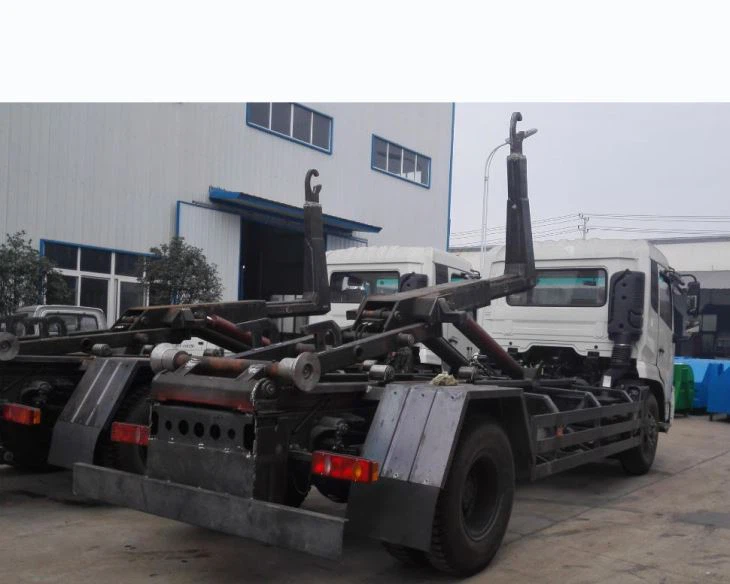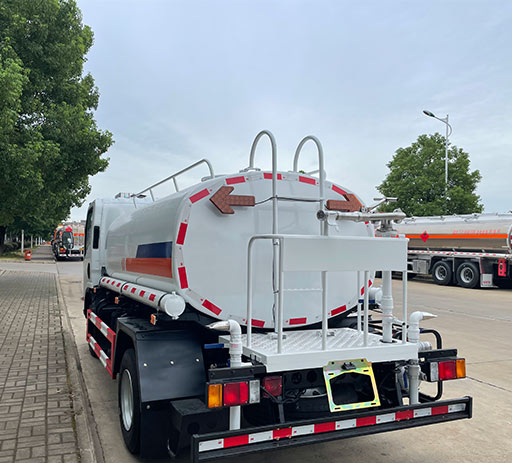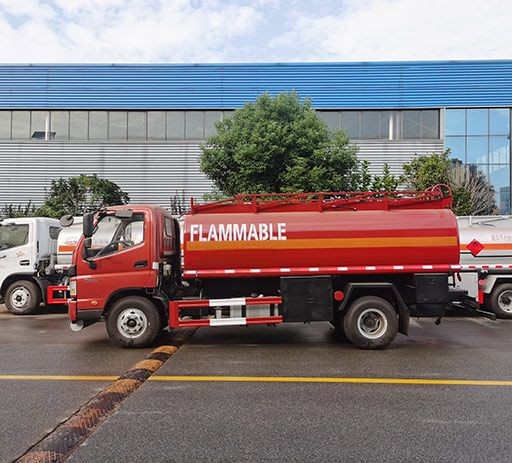Complete Guide to Truck Jetters: Revolutionizing Drain Cleaning

Introduction
In the world of plumbing and drainage maintenance, managing blockages effectively is paramount for ensuring smooth operations. Among the most powerful tools in this industry is the truck jetter. This comprehensive guide will dive deep into what truck jetters are, how they work, their benefits, and how to choose the right one for your needs. Whether you are a plumbing professional or a business owner, understanding truck jetters can significantly enhance your capabilities in maintaining clean and efficient drain systems.
What is a Truck Jetter?
A truck jetter, or water jetter, is a machine used primarily for cleaning clogged pipes and drain lines. It utilizes high-pressure water jets to clear blockages, grease, roots, and other debris from plumbing systems. Mounted on a truck, these jetters are designed for mobility, allowing operators to reach various job sites without needing extensive setup.
How Truck Jetters Work
Truck jetters work by pumping water at high pressure through a nozzle at the end of a hose. This water is forced into the drains and pipes, using a combination of pressure and flow rate to dislodge blockages. The nozzle can come in various shapes and designs, each suited for specific types of blockages and conditions.

Components of a Truck Jetter
- Water Tank: Stores fresh water for the jetting process.
- Pump: Generates high pressure to propel water through the hoses.
- Hoses: Flexible tubes that deliver water to the blockage point.
- Nozzles: High-pressure attachments that direct water flow at specific angles to tackle different types of obstructions.
- Control Panel: Allows operators to manage pressure, flow rate, and other crucial functions.
Benefits of Using Truck Jetters
Truck jetters offer numerous advantages over traditional drain cleaning methods. Here are some of the key benefits:
1. Efficiency in Clearing Blockages
Truck jetters can clear a range of blockages more effectively than snakes or chemical solutions. Their high-pressure water streams can cut through grease, tree roots, and hard debris, making them an ideal choice for tough jobs.
2. Non-Damaging Cleaning
Unlike mechanical methods, such as augers, truck jetters do not scrape or scratch the insides of pipes. This minimizes the risk of damage to the plumbing system, preserving its integrity.
3. Versatility
Truck jetters can handle various pipe sizes and types, making them versatile tools for different applications—from residential properties to industrial settings.
4. Environmentally Friendly
Using high-pressure water reduces the need for harsh chemicals that can harm the environment. This eco-friendly method is safe for both the plumbing system and the surroundings.
5. Preventative Maintenance
Regular use of truck jetters can prevent future clogs by effectively removing build-up before it becomes an issue, resulting in longer-lasting plumbing systems.
Choosing the Right Truck Jetter
Selecting the right truck jetter for your business or personal needs involves several considerations. Here are the key factors to keep in mind:
1. Pressure and Flow Rate
The pressure (measured in PSI) and flow rate (measured in GPM) are critical aspects to consider. Higher PSI is ideal for tougher blockages, while adequate GPM ensures efficient water flow through longer hoses.
2. Size and Mobility
Consider the size of the truck you have available for mounting the jetter. The jetter should fit comfortably within your truck’s dimensions while providing sufficient power and capacity.
3. Hose Length
The length of hoses affects the reach of your truck jetter. Longer hoses make it easier to access hard-to-reach areas, but also require consideration of the pump’s power to maintain pressure.
4. Budget
Truck jetters come in a variety of price ranges. Establishing a budget ahead of time can help narrow down your options while ensuring you invest in a reliable model.
5. Brand Reputation and Support
Opt for reputable brands that offer good customer support and warranty services. This can help with maintenance and troubleshooting down the line.
Truck Jetter Techniques and Tips
1. Proper Setup
Before using a truck jetter, make sure the setup is correct:
- Ensure the water tank is full and connected securely.
- Check hose connections and nozzle fittings for damage.
- Verify pressure settings are appropriate for the job at hand.
2. Use the Right Nozzle
Different nozzles serve various purposes. For example:
| Nozzle Type | Best Use |
|---|---|
| Rotary Nozzle | Heavy roots and grease |
| Fan Nozzle | General debris cleaning |
| Penetrating Nozzle | Breaking through tough clogs |
3. Start with Lower Pressure
When tackling a blockage, start with lower pressure. Gradually increase as necessary to avoid overwhelming the system or causing damage.
4. Maintain Your Equipment
Regular maintenance of your truck jetter will ensure it operates efficiently. Keep the equipment clean, check for wear and tear, and follow manufacturer guidelines for maintenance schedules.
5. Understand the Pipe Material
Different pipe materials react differently to high-pressure cleaning. Be aware of the type of pipes being cleaned to ensure safety and efficiency:
- PVC: Generally resistant but can crack under excessive pressure.
- Clay: Durable but requires careful pressure management.
- Cast Iron: Robust but can have weak spots; proceed with caution.
Common Applications of Truck Jetters
Truck jetters are versatile tools used in a variety of professional settings. Here are some common applications:
1. Residential Drain Cleaning
Homeowners often face clogged drains that can be effectively cleaned with a truck jetter, ensuring a clear flow and preventing future issues.

2. Commercial Plumbing Services
Restaurants and businesses with grease traps benefit from the powerful cleaning capabilities of truck jetters, allowing for compliance with health regulations.
3. Municipal Waste Management
Local governments use truck jetters for routine maintenance of sewer systems, helping prevent backups and ensuring public infrastructure remains functional.
4. Industrial Applications
Factories and industrial facilities commonly utilize truck jetters to manage heavy debris and maintain large drainage systems essential for operations.
Real-Life Examples of Truck Jetter Success
Understanding truck jetters’ effectiveness often comes down to real-life success stories. Here are a few instances showcasing their impact:
1. Restaurant Grease Trap Cleaning
A local diner experienced frequent grease build-up, causing slow drainage. By employing a truck jetter, the plumbing team cleared the trap within an hour, preventing potential health violations.
2. Municipal Sewer Maintenance
A city faced recurring sewer backflows during heavy rain. The local maintenance team implemented truck jetting as a preventive measure, resulting in reduced implementation costs and improved public safety.
3. Residential Clog Resolution
A homeowner struggled with intermittent clogs in their old pipes. After a truck jetting service, previous issues were resolved, and the homeowner received recommendations for regular maintenance to enhance pipe longevity.
FAQs About Truck Jetters
1. How much does a truck jetter cost?
The cost of a truck jetter varies significantly based on features, size, and brand. Small units may start at around $10,000, while larger, more advanced models can exceed $50,000.
2. How often should truck jetters be used?
The frequency of truck jetting depends on the usage and condition of the drain systems. Regular maintenance, every 6 to 12 months, can help prevent major blockages.
3. Can truck jetters be rented?
Yes, many equipment rental companies offer truck jetters for short-term use, which can be a cost-effective solution for occasional cleanings.
4. Are truck jetters safe for all types of pipes?
While truck jetters are safe for many pipe materials, caution is needed with older or damaged pipes. Always assess the condition and type of pipe before use.
5. Do truck jetters require special training to operate?

Yes, operator training is often necessary to ensure safe and effective use. Proper training helps alleviate risks and maximizes efficiency in cleaning.
6. What maintenance do truck jetters require?
Routine maintenance includes checking water levels, inspecting hoses and nozzles, cleaning filters, and ensuring that the pump operates smoothly. Following the manufacturer’s maintenance schedule is crucial.
